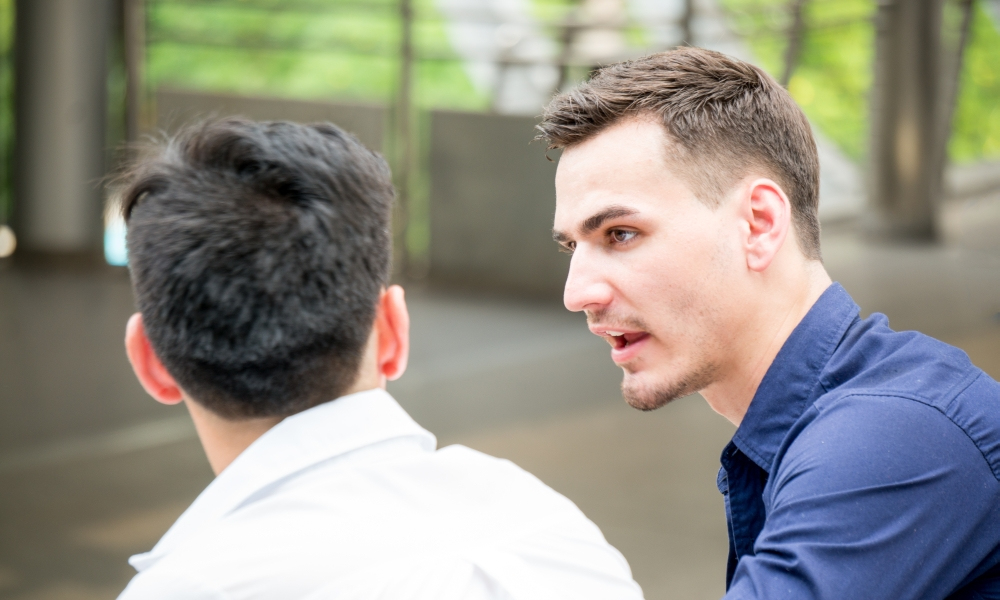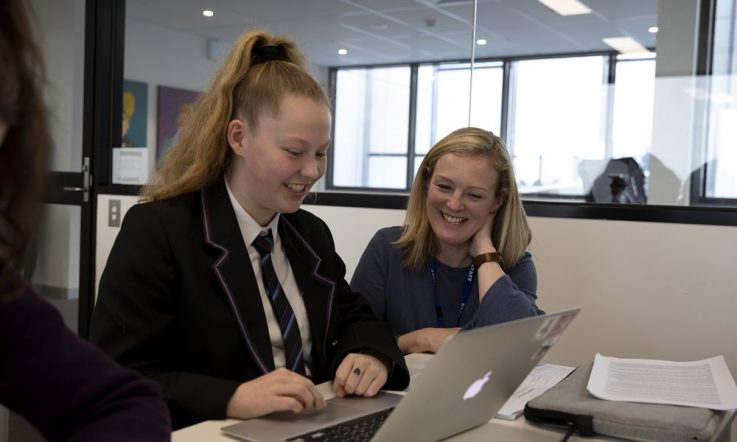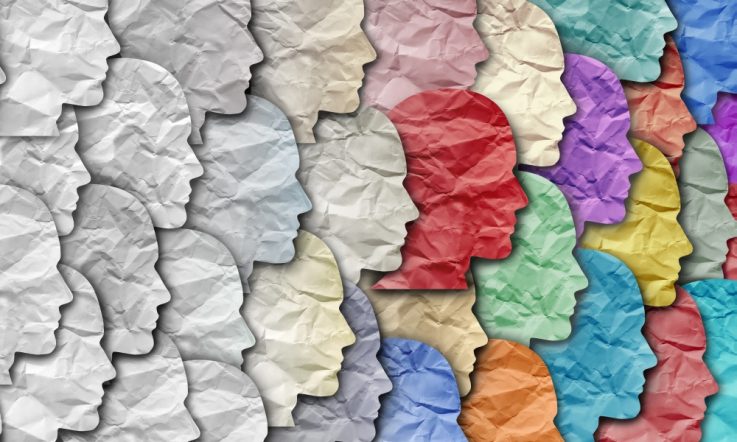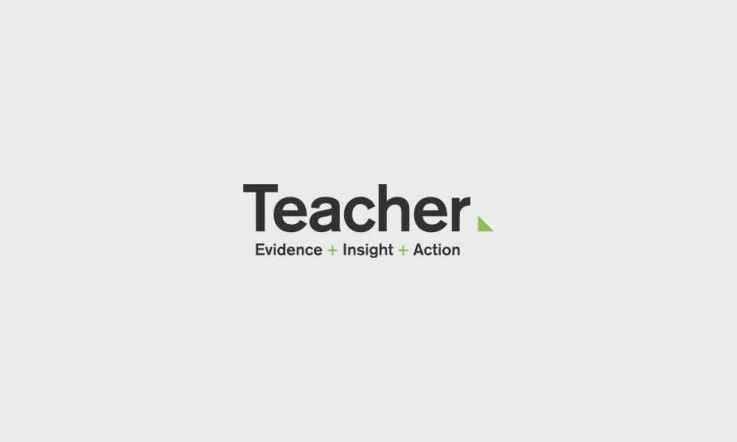It's hard to comprehend the pace and scale of change we've experienced over the last few months. These are unprecedented times and teachers have done an incredible job adapting to the many challenges the pandemic has presented. The health and safety of their students has always been front of mind, but I know it's been tough.
As teachers, students and families work to cope with this ever-evolving situation, schools are putting a greater focus on mental health and wellbeing, bolstering their resilience and capacity to continue to learn as we move into the recovery stage.
Teachers are prioritising mental health
It's heartening to see that 69 per cent of schools, 23 per cent of early learning services and 118 000 individual educators are now registered with the national mental health in education initiative Be You. In April and May this year Be You saw the number of completed professional learning modules triple. Be You website visits have also doubled since April 2020.
These numbers indicate that educators not only understand the importance of prioritising mental health at this difficult time, but also want to increase their skills in this area by accessing online support.
What appears below is advice for teachers drawn from Be You. It's a menu for educators to draw on, a set of helpful ideas. I hope you find it useful.
Taking a whole learning community approach
Evidence shows the most effective approach to mental health prevention and promotion is one that involves the whole learning community – including leaders, educators, students, families and the wider local community.
At Sawyers Valley Primary School, just outside Perth in Western Australia, teachers believe their learning community's ability to cope with the pandemic was strengthened by their shared culture, common language and strong policies and procedures around mental health and wellbeing.
In the lead up to the pandemic, the school had been using Be You resources like surveys to consult with their broader learning community and then the Reflection Tool, which enabled them to rate the school in different areas and come up with a social and emotional wellbeing plan. The whole staff were involved in using the tool.
Part of Sawyers Valley Primary's culture is to focus on positive behaviours, which helped them manage the challenges posed by COVID-19. In difficult times, it's important to emphasise your school's strengths and to build on them. A positive frame of mind puts you in a better position to respond and helps you to recognise and encourage students' strengths.
Relationships underpin resilience and wellbeing
At Beyond Blue, we've heard a lot of stories recently about teachers showing extraordinary leadership and adaptability though the pandemic.
One story was about a teacher who decided to deliver presents to every child in her class during isolation, as a way of staying connected. One student who lived on a rural property didn't have a letterbox, so he built one in anticipation of his teacher's visit. Like so many other children and young people across Australia, his relationship with his teacher was important to him, so that personal touch was vital in helping to maintain that connection.
While not all teachers are able to play Santa Claus, focusing on relationships, even in small ways like asking a student about their weekend, can play a big role in supporting a student's mental health and wellbeing, including their ability to be resilient and continue to learn. When we feel supported, we are in a better position to cope with difficult experiences.
Be You advises teachers to encourage students to:
- Reflect on what they're finding challenging and what they're enjoying about the changes caused by the pandemic.
- Celebrate what's going well and share any anxieties.
- Manage their stress levels by using positive self-talk, exercise, healthy eating, connection with their friends and finding ways to enjoy themselves.
- Get support from a mental health or wellbeing professional if needed.
We are all affected by how those around us are feeling, so Be You advises schools to help everyone in the learning community feel supported, connected and have a sense of belonging by:
- Making sure each student has an ongoing, meaningful relationship with a teacher.
- Encouraging staff to look after themselves and check in on colleagues.
- Developing warm, collaborative relationships with families.
- Embedding practices that acknowledge, consider and celebrate diversity.
- Normalising help-seeking behaviour and making sure staff, students and families are aware of wellbeing services within the school and broader community.
Talking through challenges
When times are tough it's normal to have more difficult conversations. Handling these conversations well can turn them into positive experiences and help build strong relationships.
When talking with students, families or colleagues, Be You recommends:
- Listening to them – feeling and being heard helps people feel calm and think more clearly.
- Validating their feelings by saying, ‘I think I'm hearing that you are feeling …'. You don't need to accept responsibility for these feelings. It's important for your own wellbeing that you don't take emotional conversations personally, so debrief afterwards with a trusted colleague, family member or friend.
- Being open and honest about areas of uncertainty or continuing concern, so the person feels like it's not just them having these feelings.
- Listening to understand, not judge or blame. Double check you have understood what their issues are.
- Trying to focus the conversation on small things – within your and the other person's power – that you can do in the short-term that may improve things.
- Following up with a written communication after important conversations, to confirm agreed decisions and actions. Creating this line of communication helps build trust and provides a record of the discussion.
Strengthening relationships with families
One of the unexpected upsides to these challenging times is that many schools have found their time in remote learning helped them build stronger relationships with families. These relationships are key to students' mental health and wellbeing.
Be You recommends schools work with families by:
- Creating a culture of kindness within the school, including sharing and celebrating positive developments.
- Encouraging all families to highlight any issues with educators early so they can help, rather than waiting until it reaches crisis point.
- Explaining the signs of common mental health issues to families so they know what to look out for and how the wellbeing team are offering support.
- Making it clear that educators aren't mental health professionals but are there to provide general wellbeing support for students.
- Sharing the details of support services with all families, including headspace, ReachOut, Kids Helpline, Lifeline, Raising Children, Emerging Minds, 1800RESPECT, Mensline and Beyond Blue's Coronavirus Mental Wellbeing Support Service.
Pandemic restrictions may mean in-person meetings with families are off the cards for some states and territories, so Virtual School Victoria [formerly the Distance Education Centre Victoria] recommends negotiating a form of communication with families that works for them and you. Families may not be comfortable with some communications channels due to poor reading or technical literacy, or because they can't use the channel without being overheard and therefore can't talk freely.
Virtual School Victoria creates a forum with families through a family survey with two questions: ‘What is helping you manage during these times? and ‘What can we do to help?'. The school then develops themes from responses, which helps shape the school's family communication plan.
Noticing when a student is struggling
Children and young people's physical and mental health can be impacted when there are high levels of stress or multiple stress factors, especially those they can't control. Students who may be feeling overwhelmed by stress or anxiety could appear tired, withdrawn, irritable, fearful, unmotivated, moody, lose their appetite, need more comfort, or have trouble concentrating and feel physically unwell.
The Be You Behaviour, Emotions, Thoughts, Learning and Social Relationships (BETLS) tool can be handy in assessing what's different. It's also important to consult with colleagues, school leaders and families if you're unsure whether you're witnessing a change in behaviour.
As a significant adult in the lives of your students, it's helpful to check in with them if you think they may be struggling. Educators aren't responsible for diagnosing or treating mental health issues, so it's important to refer students and families to the right person if they bring up a topic that is outside your expertise.
Following up with at risk and disengaged students
Sawyers Valley Primary School checked in with ‘at risk' families during isolation to find out if they could do anything to support them. A family with a child with special needs was really struggling as the student couldn't understand why they could no longer go to the park to play.
The school organised for the child to come and visit the nature play area at the school when children from essential workers' families weren't around. The school said it was a small thing for them to do but made a big difference to the family to have a break from their home.
Be You advises following up with ‘at risk' and disengaged students to let them know what wellbeing support the school offers. It can be helpful to develop plans with these students to anticipate potential triggers and stressors as they try to cope with change, and to lay out strategies for managing these scenarios.
Support for educators and schools
The social, emotional and financial impacts of this pandemic have already hit many Australians hard and there is a long road to recovery ahead. We will need the whole community to pull together as we get back on track.
Schools are ideally placed to support their community, but we know the pressures on teachers are great. Be You is here to support schools and educators.
To explore more ways of supporting yourself, colleagues and the mental health and wellbeing of your learning community visit beyou.edu.au for resources, events and access to Be You consultants. A Coronavirus Mental Wellbeing Support Service is also available through Beyond Blue, offering a range of advice and support in managing stress and anxiety through the pandemic.



